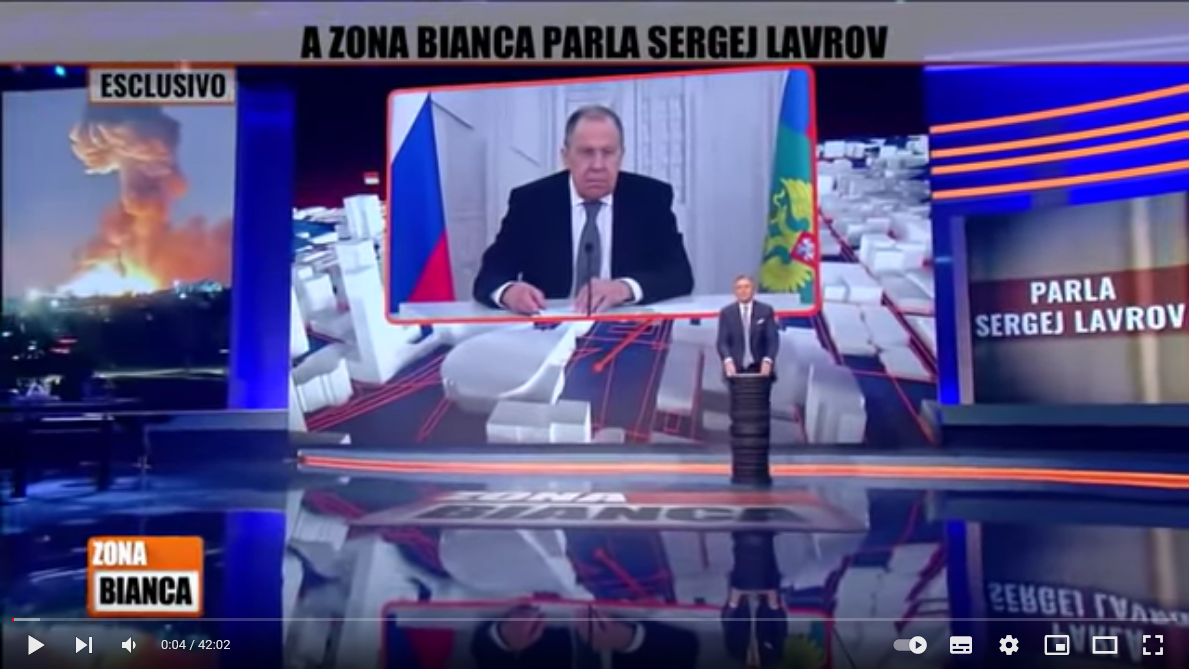Russian propaganda in Italian media
09.06.2022
Every message of the Kremlin that reaches the Western public opinion should be alarming as it may affect the way the Russian aggression in perceived. Media in Italy constitute a telling example of how easily and deeply the Russian propaganda may infect the Western infosphere.

Propaganda is a constant element of the war waged by Russia against Ukraine and disinformation actions are one of active measures used by the Kremlin in order to achieve military and political goals. Russian disinformation is targeted against the Ukrainian nation, NATO and its allies and also directed at Western societies with the aim to build a narrative that is beneficial to Russia.
Russian propagandists and experts propagating pro-Russian theses are frequent guests in Italian news programs where a "special operation in Ukraine” is being commented on and the Kremlin’s propaganda is being spread. There are even opinions that Italian media have become a Russian "disinformation outpost in the West”.
Since the beginning of the Russian aggression in Ukraine, Russian politicians and top propagandists practically have not been leaving studios of Italian channels, both public and private. They appear in the most popular interviews and talk-shows almost of entertaining character, where invited guests are applauded by the audience.
Even though Italian media explain that they want to show diverse opinions and ensure the liberty of debate and freedom of speech consists of inviting people representing both sides of the conflict, in reality Italian channels have become a platform of free expression for the Russian voice, where propagandists are equal partners for discussion and may express even the most absurd and blatant lies and gradually- even when some objections appear – disseminate pro-Kremlin false narratives among the Italian society. Such was a case of the interview of S. Lavrov with Rete 4, a channel belonging to the S. Berlusconi’s media group. S. Lavrov, almost without any counter arguments of the host, talked for 40 minutes that Russia wanted peace, he called the massacre in Bucha fake news and recalled Hitler in the context of president Zelensky.
Maria Zakharova is another guest of Italian programs. The spokesperson of the Russian MFA was invited on 5 June to a popular talk-show No è l’arena hosted directly form the Red Square in Moscow – just a few hours after the Russian Embassy in Rome accused Italian media of spreading Russophobia. Zakharova claimed that the host "talked like a child” and she had impression "he arrived on Earth one week before”. She also reminded that Italy, being a part of NATO, had entered Iraq and destroyed Baghdad killing people, even though now everybody says that an army cannot enter into the territory of another country. She also argued that the US wanted only to destroy Russia and while aiming at braking relations between Russia and Europe, the US only did harm to the West.
Italian shows hosted also political scientist Dmitry Kulikov, chief Russian ideologist Aleksandr Dugin or the main face of the Kremlin’s propaganda, Vladimir Solovyov who, while shouting at other guests, argued that crimes committed in Bucha, Kramatorsk or Mariupol had been "staged” by Ukraine.
One of the shows hosted a journalist working for the Russian Ministry of Defence TV station Zvezda, Nadana Friedrichson. She claimed that security of citizens of Donbas and Crimea was crucial for Russia. In addition, when asked about crimes perpetrated by Russians, she argued that she was the only person in the studio who had visited Mariupol, so she knew better what the truth looked like.
Also professor Alessandro Orsini, barely known before the Russian aggression, has become a media expert. Already in March he postulated that the war was in any event lost, so Putin’s demands should be met. He also said that he would rather see his children “living under dictatorship than dying under bombs in the name of democracy.”
Unfortunately, such deep infiltration of the Italian public opinion by Russian influence bears fruit. According to the poll conducted in Italy 3 months after the Russian aggression, 35% of respondents claim that NATO poses a threat to Russia, 39% don’t take any sides in the conflict, 33% think that the decision of Sweden and Finland about joining NATO is a mistake, only 17% support sending by Italy weapons to Ukraine and 27% claim that sanctions imposed on Russia should be lifted. Such results indicate that all manifestations of disinformation should be firmly countered, because they constitute an effective tool enabling aggressors to gradually achieve their aims.
Spokesman for Poland’s Minister-Special Services Coordinator





